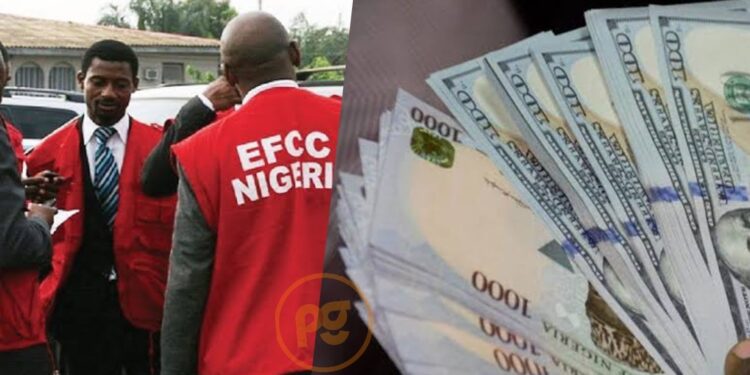In a bid to curb the activities of currency speculators and stabilize the exchange rate, Nigerian banks have sold approximately $172 million, representing a significant increase in forex sales. This move comes amidst efforts by the Central Bank of Nigeria (CBN) and the Economic and Financial Crimes Commission (EFCC) to address the widening gap between the official and parallel market rates of the naira against the US dollar.
The naira experienced a marginal gain against the US dollar at the Nigerian Autonomous Foreign Exchange Market (NAFEM), closing at N1,542.58/$ compared to the previous rate of N1,551/$. However, despite this improvement, the naira depreciated further to N1,900 against the dollar at the parallel market, highlighting the ongoing volatility in the forex market.
Currency speculators have been identified as key drivers of this volatility, with concerns mounting over round-tripping activities that exacerbate the gap between official and parallel market rates. Analysts and Bureau De Change Operators have warned that the naira could reach an all-time low of N2,000/$ at the parallel market in the coming weeks if current trends persist.
In response to these challenges, the EFCC recently conducted operations in the Wuse Zone 4 market, targeting currency speculators. This operation is part of a coordinated effort with the CBN and other law enforcement agencies to restore exchange rate stability and boost forex liquidity.
President Bola Tinubu has also expressed his administration’s commitment to raising at least $10 billion to increase forex liquidity and stabilize the naira. The government has implemented various policy interventions aimed at boosting forex supply, including the release of guidelines to regulate forex transactions by commercial banks and international oil companies.
Despite these efforts, challenges persist in the forex market, with analysts and stakeholders raising concerns over transparency and disclosure at NAFEM. The wide gap between intra-day trading rates has sparked calls for greater transparency and accountability in forex trading activities.
While the CBN has yet to respond to these developments, stakeholders continue to monitor the situation closely, seeking solutions to address the root causes of forex market instability and promote economic stability.
Efforts to obtain comments from the CBN were unsuccessful at the time of filing this report, but sources within the central bank have indicated that details of parties involved in forex transactions on the FMDQ platform are not publicly disclosed, limiting transparency in the market.









